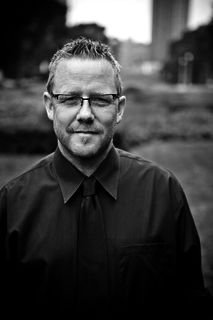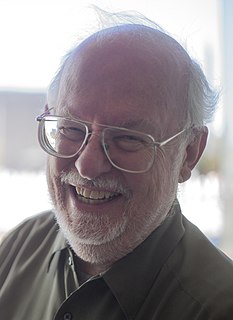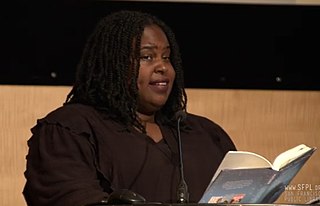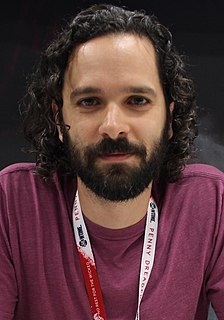A Quote by Ray Bradbury
I've written about 2,000 short stories; I've only published 300 and I feel I'm still learning. Any man who keeps working is not a failure. He may not be a great writer, but if he applies the old fashioned virtues of hard, constant labor, he'll eventually make some kind of career for himself as a writer. Ray Bradbury, 1967 interview (Doing the Math - that means for every story he sold, he wrote six "un-publishable" ones. Keep typing!)
Quote Topics
About
Any
Bradbury
Career
Constant
Doing
Eventually
Every
Failure
Feel
Great
Hard
Himself
Interview
Keep
Keeps
Kind
Labor
Learning
Make
Man
Math
May
Means
Old
Old Fashion
Old Fashioned
Only
Published
Ray
Short
Short Stories
Six
Sold
Some
Still
Stories
Story
Typing
Virtues
Working
Writer
Written
Wrote
Related Quotes
Ray Bradbury is, for many reasons, the most influential writer in my life. Throughout our long friendship, Ray supplied not only his terrific stories but a grand model of what a writer could be, should be, and yet rarely is: brilliant and charming and accessible, willing to tolerate and to teach, happy to inspire but also to be inspired.
If you spend too much time learning the 'tricks' of the trade, you may not learn the trade. There are no shortcuts. If you're working on finding a short cut, the easy way, you're not working hard enough on the fundamentals. You may get away with it for a spell, but there is no substitute for the basics. And the first basic is good, old fashioned hard work.
I was writing at a really young age, but it took me a long time to be brave enough to become a published writer, or to try to become a published writer. It's a very public way to fail. And I was kind of scared, so I started out as a ghost writer, and I wrote for other series, like Disney 'Aladdin' and 'Sweet Valley' and books like that.
I believe the only way a writer can keep himself up to the mark is by examining each story quite coldly before he starts writing it and asking himself if it is all right as a story. I mean, once you go saying to yourself, 'This is a pretty weak plot as it stands, but I'm such a hell of a writer that my magic touch will make it okay,' you're sunk. If they aren't in interesting situations, characters can't be major characters, not even if you have the rest of the troop talk their heads off about them.
Long fiction is wonderful and you can lose yourself in it as a reader and as a writer, but short stories don't allow the same kind of immersion. Often the best stories hold you back and make you witness them. This may be one of the reasons some people reject the form. That and the fact that they are harder work to read. A story will not let you get comfortable and settle in. It is like a stool that is so small that you must always be aware of sitting.
I started writing the book without realizing I was writing a book. That sounds stupid, but it's true. I'd been trying and failing to make a different manuscript work, and I thought I was just taking a break by writing some short stories. I'm not a very good short story writer - the amazing compression that is required for short stories doesn't come easily to me. But anyway, I thought I'd try to write some short stories. And a structure took shape - I stumbled upon it.
I want studios that make story-based games to start taking their stories more seriously. And that doesn't mean hiring a big shot writer from Hollywood; it means that story becomes integral to making your game. I don't see how you can achieve that without having an in-house writer that sits next to the designer, helping them make their levels, talking with the engineers about where we can tell the story more dynamically, pushing at technology.
I was writing everything. I grew up in Albany, New York, and I was never any farther west than Syracuse, and I wrote Westerns. I wrote tiny little slices of life, sent them off to The Sewanee Review, and they always sent them back. For the first 10 years I was published, I'd say, "I'm a writer disguised as a mystery writer." But then I look back, and well, maybe I'm a mystery writer. You tend to go where you're liked, so when the mysteries were being published, I did more of them.
[The career a young man should choose should be] one that is most consonant with our dignity, one that is based on ideas of whose truth we are wholly convinced, one that offers us largest scope in working for humanity and approaching that general goal towards which each profession offers only one of the means: the goal of perfection ... If he works only for himself he can become a famous scholar, a great sage, an excellent imaginative writer [ Dichter ], but never a perfected, a truly great man.






































